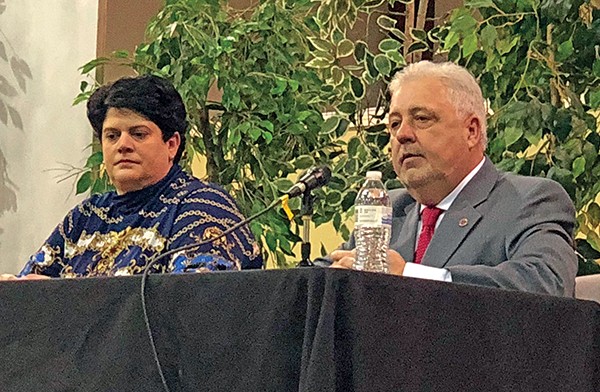King Arthur was not present. In fact, the ranking attendee at the Roundtable in East Memphis last Saturday night for Brian Kelsey’s out-of-prison celebration was Brent Taylor, the fellow Republican who won a special election to succeed Kelsey in the state Senate.
A crowd of some 50 family members and well-wishers braved street floods and a thunderstorm of generational ferocity to help Kelsey rejoice at his recent pardon by President Trump — a circumstance that a grateful Kelsey kept referring to as a “miracle” in the course of a 15-minute speech to the gathering.
Kelsey had been convicted of conspiring with others in a scheme to illegally funnel campaign finance money from his state account into his unsuccessful 2016 congressional race. He consented to a plea arrangement of guilty but later tried and failed to get his plea rescinded.
Ultimately, he would surrender and had spent two weeks in a federal prison in Kentucky before getting the surprise pardon from President Trump two weeks ago. After his indictment, he had contended that he was being unjustly targeted by then-President Joe Biden. Though the claim appeared far-fetched to many observers, Trump may have regarded it as credible. In any case, Kelsey had a network of GOP supporters who had kept up his fight for vindication.
On the morning that he learned of his pardon, Kelsey told the crowd, guards were conducting a shakedown of the prison population, looking for illicit drugs.
Kelsey said that he was writing a book about his brush with the law, presumably including information about his trial as well as his incarceration.
• Another Go
Mark Billingsley, the once and possibly future county commissioner, speaking with KWAM on Monday morning, announced his candidacy in 2026 for the District Four commission seat, now held by the term-limited Brandon Morrison, saying, “The last couple of years I’ve been really concerned with our leadership. The way we change things is getting involved. People are voting with their taillights, they are leaving, and I want them to have better opportunities in Shelby County for young and old.”
Republican Billingsley mentioned a dilapidated jail and a defective educational system as things in need of remedy.
“All Shelby County residents deserve better, and they should demand more common sense and real accountability from their elected officials, no matter their party affiliation,” he said, pledging to work across the aisle with the commission’s majority Democrats.
And Terry Roland, who served as commission chair during his two terms on the body, wants to return to his old District One seat, now held by the also term-limited Amber Mills.
Roland, another Republican, is well known to followers of local politics as a colorful ideologue with pronounced MAGA sympathies. But, like Billingsley, he boasts his record of working across the aisle and was in the forefront of efforts to resolve racial disparities in the county workforce.
A specialist in economic development tools, Roland is the immediate past president of the Millington Area Chamber of Commerce. He recently cofounded a consultancy group with Cary Vaughn and Jon Crisp to focus on development issues.


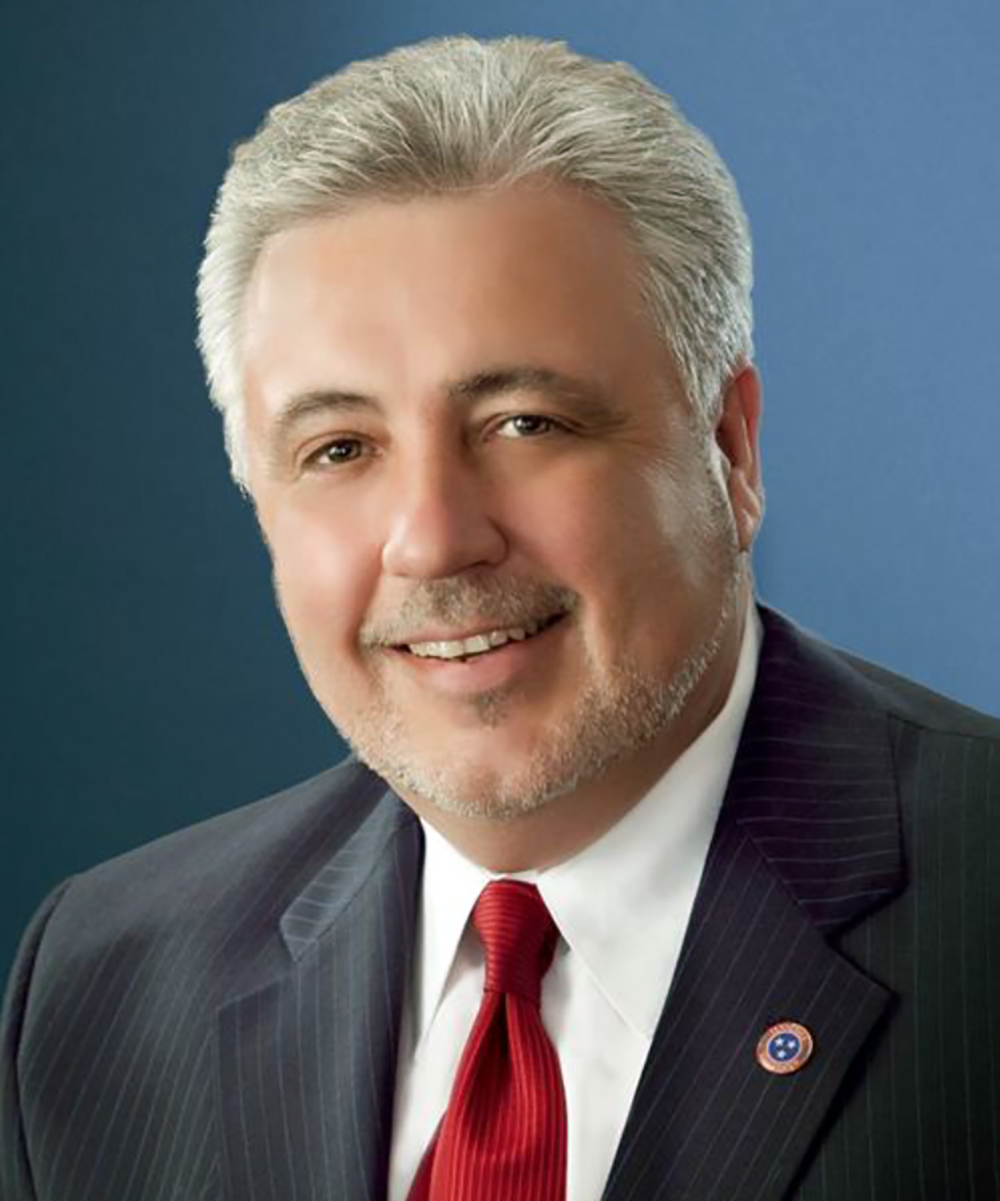

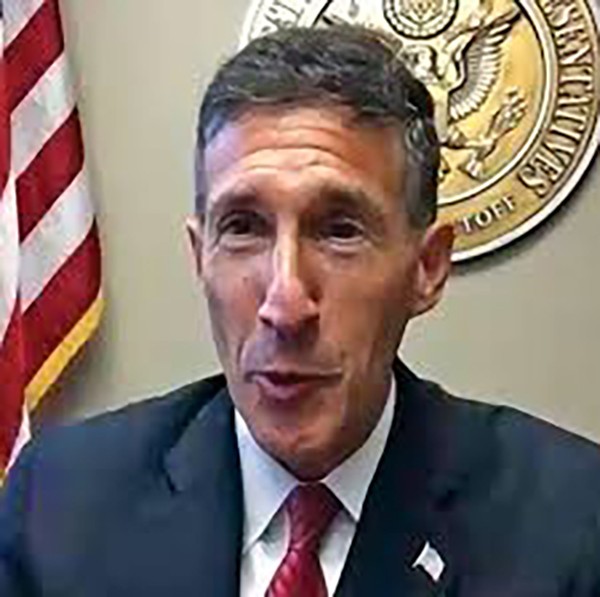 Jackson Baker
Jackson Baker 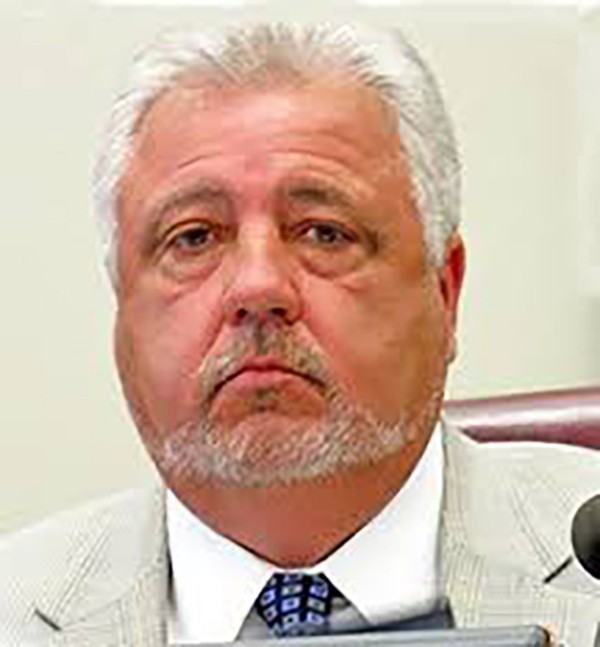 Jackson Baker
Jackson Baker 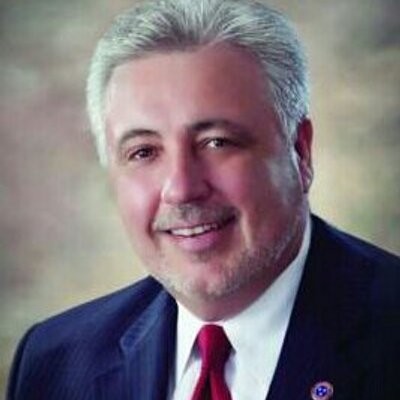

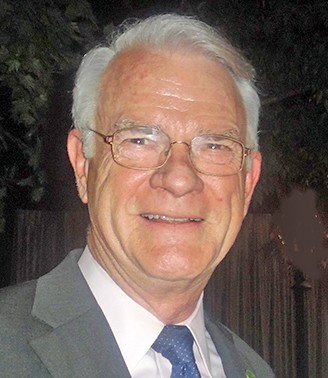 Jackson Baker
Jackson Baker 